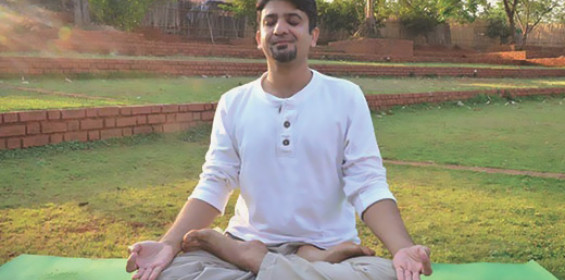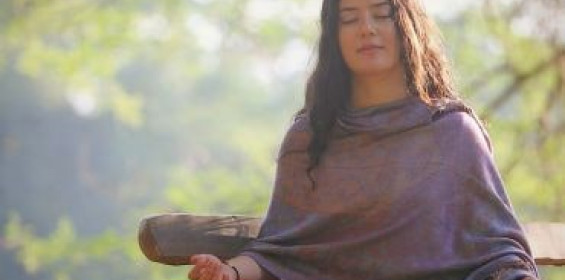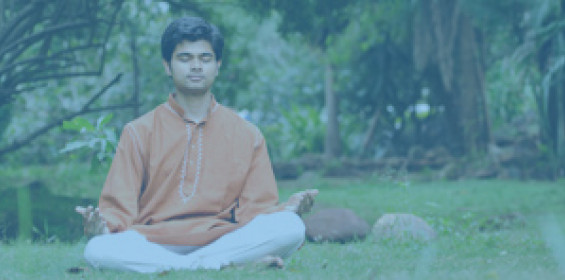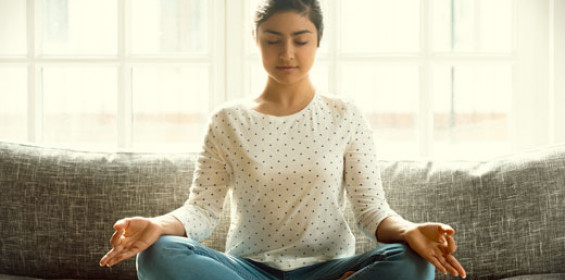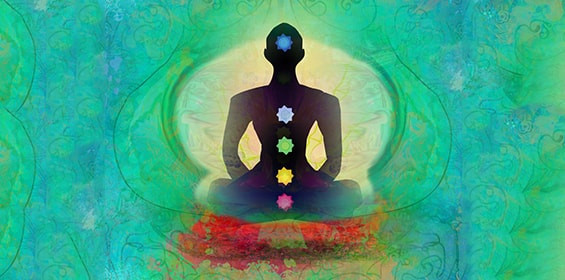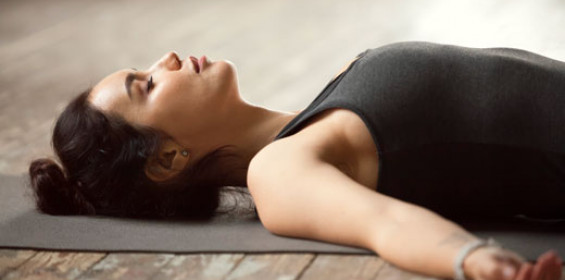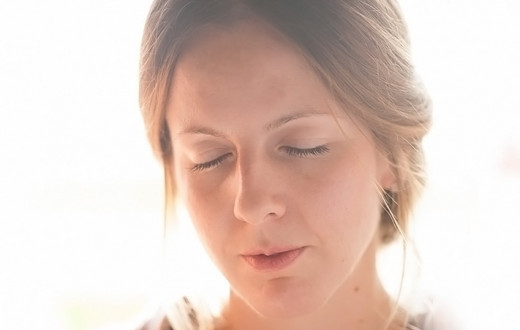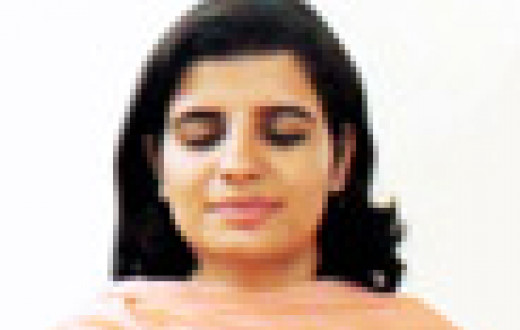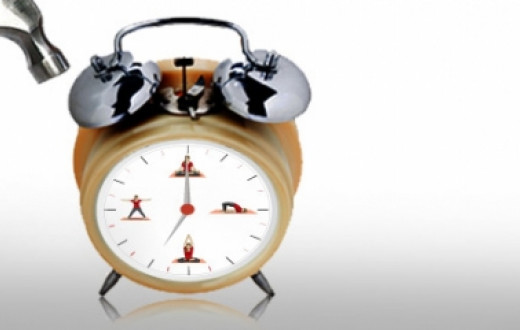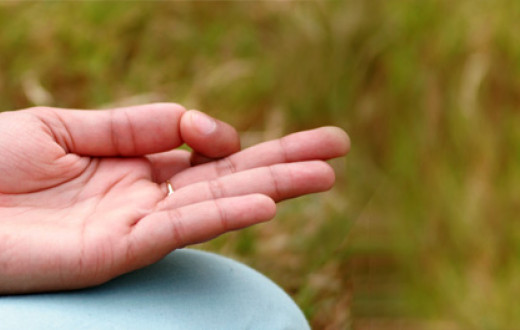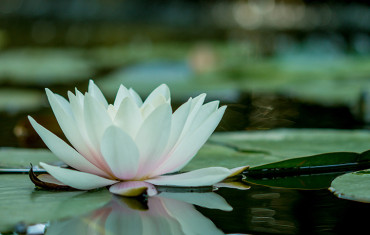Chris Dale has been a regular meditator for over 35 years and has experienced several of the highs and lows along the way. He teaches Sahaj Samadhi Meditation and is keen to ensure that students are able to practice effectively. Here he shares with us how to avoid some of the traps and pitfalls on the spiritual path to have a happier, healthier and more successful life.
Q1: You have been meditating for many years. Tell us about your first experience of meditation and the journey to now.
Chris Dale : My first experience of formal meditation was in 1977 when I was initiated into a form of mantra meditation. When I started repeating the mantra given to me by the teacher, my whole body began to shake. Later in that meditation I felt like I was flying and afterwards I felt incredibly relaxed and peaceful.
I was so affected by that meditation that I tried to replicate the experience in subsequent sessions and found that my meditations were less deep. After a few weeks I realised that I was using a lot of effort. When I let go of trying to repeat the first blissful experience my meditations again started to become more satisfying.
Over the years, as I continued to meditate regularly, I started to experience bliss states and deep calm quite often, however I felt that something was lacking.
My big breakthrough came when I got initiated by Gurudev Sri Sri Ravi Shankar in Sahaj Samadhi Meditation in December 1993.
The day after receiving the mantra initiation, I left the ashram to fly back home. I was at the old Bangalore airport – which would seem like not an ideal place to meditate, with lots of noise and bustle. I thought I'd meditate for a few minutes while waiting for my flight call. I experienced the deepest meditation of my life. When I came out of it I fell in love with everybody I laid eyes on and could feel with every fibre of my being that we are all in essence the same consciousness.
That experience at Bangalore airport was great, but through the beautiful teachings from Gurudev Sri Sri Ravi Shankar I came to appreciate that meditation is not so much about having experiences, but discovering who we are in the deepest core of our being.
Q2: What have you learnt or how have you changed since becoming a regular meditator?
Chris Dale : I have become much more contented and accept myself and others much more. In fact it doesn't really feel that there is a “me” and others a lot of the time. Even when life is challenging there is an underlying feeling that everything is fine.
I feel so greatful for being given the opportunity to practice and teach this liberating knowledge.
Q3: As a teacher what advice do you give to someone who wants to learn?
Chris Dale : To anyone who wants to learn to meditate I would say four things.
Firstly, seek out an experienced teacher from an authentic lineage of masters. An essential aspect of meditation is the shakti (power) and Grace behind the technique which is more important than the technique itself.
Secondly, I would advise learning and practising an effortless form of meditation. Basically there are three approaches to meditation - concentration, mindfulness and effortless stillness.
While the first two definitely have many benefits, they require some effort and therefore do not allow the mind to rest as deeply as in effortless stillness.
Thirdly, I would say, don't look for flashy experiences. It is the changes in one's life as a result of the practice which are important, not anything which happens in meditation. Looking for experiences is a barrier to entering the meditative state.
Fourthly I would say before or soon after learning to meditate, take the Art of Living Part 1 and if possible, Part 2 courses if you haven’t already. The pranayamas and Sudarshan Kriya taught on these courses help to take you into the meditative state naturally and are very complementary to Sahaj Samadhi Meditation.
Q4: Can you tell us more about effortless stillness in meditation?
Chris Dale : Effortlessness is the language of the mind. Just like if we try to go to sleep we will most likely stay awake, if we try to meditate we will probably remain on the surface level of the mind.
Sahaj Samadhi Meditation is so effective in providing deep rest to the mind because it is totally effortless. Particularly when combined with pranayama and Sudarshan Kriya, it naturally leads to more focus and mindfulness in activity.
While there are many practices available, very few lead naturally to complete non-doing. It is in that non-doing that the deep rooted impressions in the subconscious layer of the mind spontaneously dissolve.
It is these impressions which make us feel limited, inhibited, uneasy and contracted. When they start to dissolve there is a tremendous feeling of freedom and the body and mind spontaneously move to a state of balance and harmony.
Q5: What are the benefits you have seen in your students?
Chris Dale : The benefits of regular effortless meditation are incredible. I have seen many people with physical health issues substantially helped. For example, I have had several students with uncontrolled high blood pressure who were able to bring it under control with Sahaj Samadhi Meditation. I've seen harassed, stressed and depressed people come out of their suffering and start to enjoy life again. I have seen relationships at home and at work turn around. I've seen people who were unable to function effectively start to lead happy and productive lives.
The reason for these amazing benefits is that when you meditate regularly and transcend the thought process, you are opening up to the level of pure consciousness which is the basis of everything in life.
I remember one of my students in Australia who practices Traditional Chinese Medicine found that his business picked up remarkably after starting to meditate. After his meditations he would regularly receive calls from prospective clients.
People become happier, healthier and more successful after learning to meditate.
I think the biggest benefit is that meditation leads to a state of complete fulfillment where just through your presence you uplift the environment. Then personal benefits become less important.
Q6: Do you have any tips for people already practicing meditation?
Chris Dale : Yes, just relax! Be totally neutral with respect to anything which arises in body and mind during meditation. I find that many new meditators fight with their minds and resist thoughts. This just adds another layer of agitation and prevents the mind from settling.
Another trap is entertaining thoughts in meditation. Many people just let their minds roam. Effortless meditation does not mean wallowing in thoughts! So the trick is, when you are aware that you've been planning or day dreaming, let it go without regret and come back effortlessly to the mantra or whatever the focus is in the meditation you are practising. If you keep consciously day dreaming or planning then you are no longer meditating. Consciously becoming disinterested in the thought process in meditation is the principle of dispassion or vairagya.
So the attitude to take is, don't fight the mind and don't feed the mind.
Here the "Golden Keys to Meditation" from Gurudev Sri Sri Ravi Shankar are so valuable. He advises taking a decision at the start of your meditation that you want nothing, are going to do nothing and are nothing. That decision to let go of your desires (including the desire for a “good meditation”), giving up all efforts and dropping the labels that you put on yourself, will enable you to go deep into meditation.
Doing some pranayama before each meditation is very useful. If you have learnt the Art of Living course, Sudarshan Kriya is wonderful for preparing the mind for meditation. Other pranayamas such as Bhastrika and Nadi Shodhan are very useful. A good teacher can guide you in this.
I would encourage people who have learnt the Sahaj Samadhi Meditation to repeat the course or take a refresher program whenever it is available.
I feel we are so fortunate to have such a powerful meditation practice charged with the Grace of the Master, so readily available.
After meditating for several decades I feel that the most important aspect of meditation practice is showing up! Being regular, “come what may”. Even if you feel your mind is a mess just do some pranayama then sit and let go. Meditation itself is the best teacher of meditation.

